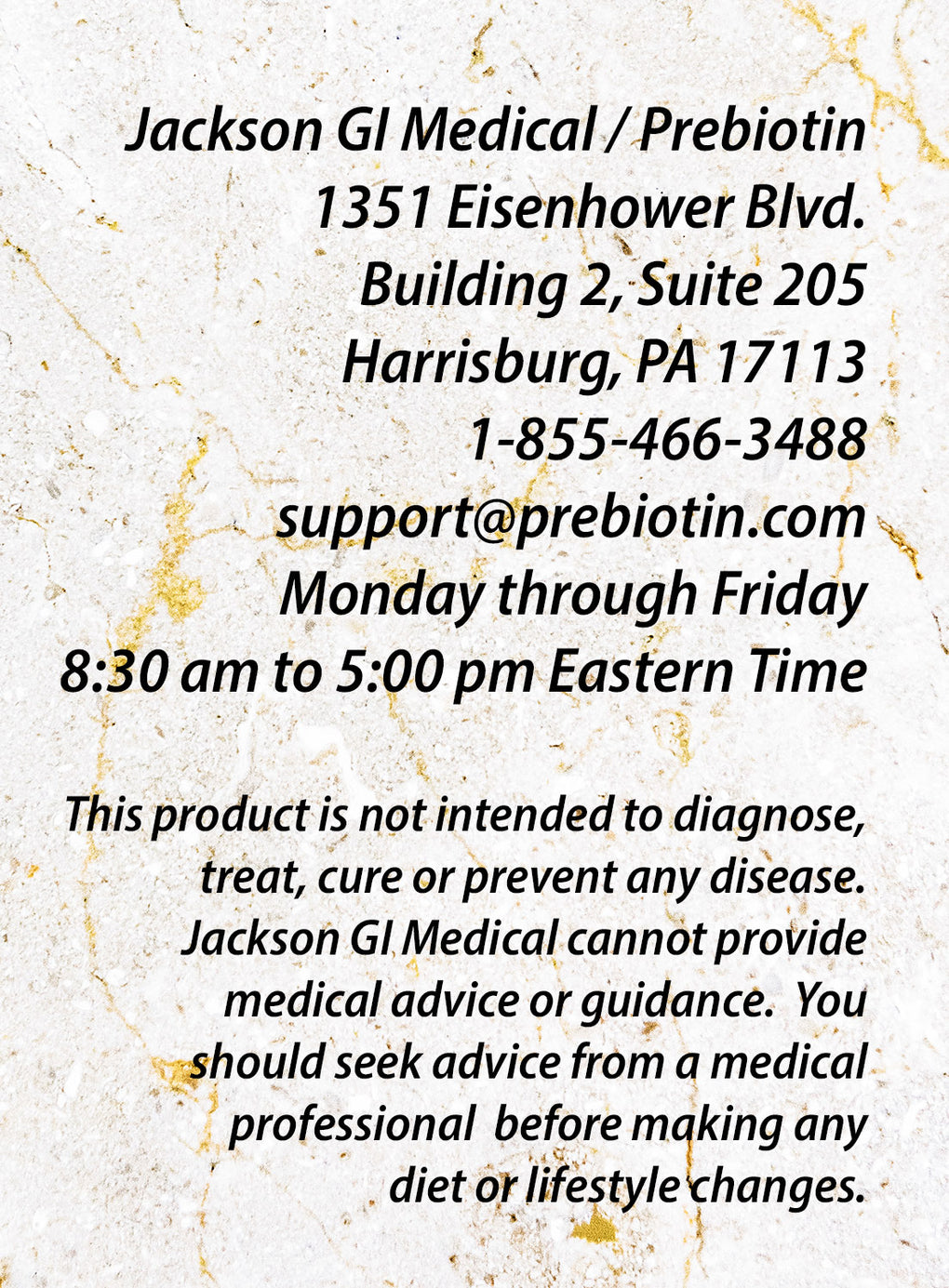Seasonal Allergies, Asthma, and Your Gut Health

Seasonal allergies and related asthma can really ruin your day. Red, itchy watery eyes, sneezing, ear pain, a runny nose, coughing, wheezing, labored breathing, and fatigue can all be a major barrier to enjoying your life—or even functioning effectively in any setting, from work to family time. You take medications that may help a little, use an inhaler, or avoid the outdoors all together, with plenty of time to wonder why your body is reacting so severely, while people around you don’t even have a sniffle.
Essentially, an allergy is the result of your immune system overreacting. Your immune system is designed to protect you from viruses and bacteria that can make you sick, but sometimes it gets tricked into going on the offensive for no reason at all.
Seasonal allergies are caused by the body’s immune system having an overly aggressive response to pollen, ragweed, grass, and other harmless substances in the environment. When the immune system sees these substances as a threat, it releases chemicals that cause the inflammation linked to your troublesome allergy symptoms, from common hay fever symptoms to seasonal asthma.
Most of us are able to diagnose seasonal allergies fairly easily. Everyone recognizes the stuffy nose and weeping eyes that get better if we move indoors away from allergen sources. If we have difficulty breathing, it may be time to go to the doctor who can confirm a seasonal allergy or asthma diagnosis and eliminate other conditions.

Seasonal allergies are the 6th leading cause of chronic illness in the U.S., with an annual cost in excess of $18 billion. Hay fever alone affects 7.8% of the adult population in the United States, according to the American Academy of Allergy Asthma & Immunology. Additionally, 9% of children reported hay fever symptoms in the past 12 months. Of the 26 million people who have asthma, about 60% have allergic asthma, the most common type.
Most people believe that allergies are a lifelong condition, but that’s not necessarily true. It’s quite possible to suddenly struggle with allergies or asthma as an adult, even if you had no symptoms before. Additionally, many children who suffer from seasonal allergies and asthma will eventually outgrow their condition.
Developing allergies later in life
According Harvard Men’s Health Watch newsletter, seasonal allergies can affect almost anyone and at any time of life. The newsletter quotes Dr. Mariana Castells, of the Department of Allergy, Rheumatology, and Immunology at Harvard-affiliated Brigham and Women’s Hospital: “Even if you have never suffered from allergies — or used to when you were much younger but not anymore — there is a good chance you will become more sensitive to pollen as you reach your 60s and 70s, although it’s not clear why.”
Is my asthma an allergy?
For some people, an allergy to pollen or pet dander, for example, may trigger more severe symptoms that affect the lungs and make it harder to breathe. These symptoms are often a sign of allergic asthma. For example, you may experience:
- chest tightness
- coughing
- problems breathing
- shortness of breath
- wheezing
In severe cases, allergic asthma, as well as nonallergic asthma, can be life threatening. Make sure you know what triggers these symptoms so you can avoid exposure or be prepared with appropriate medications or an inhaler.
I thought I was having a heart attack!
“Everything was blooming, and mother nature was at her most beautiful in the rural part of PA I call home. Since I’ve never had allergies, spring is my favorite time of year for long walks to enjoy the springtime display. Until last year. I started noticing I had difficulty catching my breath and found it difficult to walk as my breathing became more labored.
Eventually, I became concerned enough to visit my family physician. As a baby boomer, I never considered developing an allergy at this stage of life, and instead worried about a possible heart attack.
My doctor sent me to the emergency room where I stayed overnight and underwent a battery of cardiac function tests. My heart was fine. Only during a follow-up appointment a few weeks later did I learn that I had probably developed allergy related asthma. By then, the height of the pollen season was over, and I was breathing normally again, at least until the hospital bills started arriving.– G. Amersbach, Prebiotin science writer.

Young children under 5 are especially hard to diagnose with any kind of asthma because they are too young for breathing tests, according to the Mayo Clinic. While symptoms may be similar to those in adults, the doctor will ask the parents a series of detailed questions, from how often the child is experiencing symptoms, the duration, nighttime issues, and response to seasonal changes, among others, to eliminate other possible childhood conditions.
Photo Credit: Samersbach13@gmail.com
If the child’s symptoms are severe—he or she is gasping for breath, breathing so hard the abdomen is sucked to the ribs, or has trouble speaking because of restricted breath—parents must seek emergency treatment where the child may receive blood tests, a chest x-ray, or allergy tests. In moderate or severe cases, the child may be placed on daily medications, with directions on how to avoid possible triggers.
A new approach to treating your seasonal allergies and asthma
The simple approach to avoiding pollen and other seasonal allergies is to just stay inside. You may also rely on a combination of antihistamines and decongestants to help with symptoms. However, these medications often have unwelcome side effects such as drowsiness. They’re also a temporary fix that do nothing to treat the underlying problem. And finally, most of us enjoy spring time and resent viewing Mother Nature at her most showy through the window.
If your seasonal allergies are driving you crazy, consider looking into the relationship between your gut health and allergy symptoms. It sounds counterintuitive to turn to your digestive system for a solution to your allergies and allergic asthma, but growing evidence supports this approach to seasonal allergy relief.
The human microbiome is a collection of bacteria, viruses, fungi, and other microbes that live in your gut and on other areas of your body. The average person carries trillions of microbes in their gut, including more than 1,000 different species of bacteria. These bacteria help us digest our food and play a crucial role in immune system function. It is believed that up to 80% of the entire immune system makes its home in our gut!
Babies start to develop their unique microbiome right after birth and get many beneficial bacteria from the mother through the birth canal and through breast feeding. The infant’s interaction with other family members and even pets also continues to shape the microbiome—as do antibiotic treatments.
Researchers find even early in life, the composition of the gut microbiome can be an indicator if the child is at risk for a wide range of illnesses, including allergies and asthma. In a 2018 study with 792,130 children, researchers found the risk of developing an allergic disease was significantly increased in those who had received antibiotics or medications to suppress acid during the first 6 months of life.

Adults with allergies also have a different gut microbiome than those without allergies, according to a study of 1,879 adults released by the National Institutes of Health.
This study found that a lack of diversity in the gut microbiota was associated with all types of allergies, especially seasonal and/or nut allergies. They had reduced Clostridiales and increased Bacteroidales bacteria colonies in their gut microbiota.
It might be strange to think that a lack of certain bacteria in your gut is the cause of your sneezing and itchy eyes and even asthma symptoms, but this is actually good news. If you take steps to heal your gut, you’re likely to see a noticeable improvement in your allergy symptoms.
How does our gut health affect allergies and asthma?
Too clean for our own good: While a cleaner environment with improved public sanitation has had obvious health benefits, we may have become too clean for our own good. According to the hygiene hypothesis, the increasing use of antibacterial soaps, hand sanitizers, and powerful germ-killing cleaning products create a more “hygienic” environment and change the microbiota in the gut (where 80% of the immune system is housed). As our immune systems are no longer challenged, we are more prone to environmental allergens.
Leaky gut syndrome: Another reason we may develop allergies is leaky gut syndrome, or increased intestinal permeability. A poor diet, with too many processed foods, sugary sweets, and alcohol, may cause the intestinal wall to become weak and unable to block food particles, germs, and toxins from entering the bloodstream.
This can lead to systemic inflammation which has been associated with many chronic diseases, from inflammatory bowel disease and rheumatoid arthritis, to asthma and allergies. Reducing stress, exercise, and a healthy diet rich in prebiotic fiber can help to repair intestinal permeability.
Histamine intolerance: A histamine intolerance is another reason we may have allergic symptoms, even when no allergens are present. If we can’t tolerate foods high in histamines (like cured meat, aged cheese, alcohol, an canned or smoked fish, for example), the histamines may build up and produce an allergic response that mimics hay fever. A doctor can test for this condition and may ask you to avoid foods high in histamines to see if allergy symptoms get better.
Is the pollen allergy season getting longer? Blame climate change.
Scientists and physicians are documenting that as temperatures rise, the pollen allergy season is getting longer and more intense each year. In a March 2019 article published on ScienceDirect.com in The Lancet Planetary Health, the authors note that the ongoing increase in temperature extremes might already be contributing to a longer pollen season across the northern hemisphere. They write that their study “highlights an important link between ongoing global warming and public health—one that could be exacerbated as temperatures continue to increase.”
How to heal your gut dysfunction with prebiotics and probiotics
In order to heal gut dysfunction, prebiotics and/or probiotics can help. A prebiotic is non-digestible fiber found in foods like bananas, asparagus, onions and garlic, Jerusalem artichoke, the skin of apples, chicory root, beans, and dandelion greens. Prebiotic fiber goes through the small intestine undigested and is fermented when it reaches the large colon.
This fermentation process feeds the “good” bacteria colonies (including probiotic bacteria). With more beneficial bacteria in our digestive systems (also called the gut), we feel better and have reduced disease risk.
Probiotics provide your body with an extra dose of the “good” bacteria that live in your digestive system and help keep you healthy. Yogurt is the most common food source of probiotics, since it contains beneficial bacteria like lactobacillus or bifidobacteria. Fermented foods such as kefir, sourdough bread, sauerkraut, miso soup, and Gouda cheese also have probiotics.
Prebiotic and probiotic supplements may be useful if you don’t eat enough prebiotic and probiotic-rich foods to help heal your gut and promote seasonal allergy relief. Prebiotin® Prebiotic Fiber is an ideal supplement to add prebiotic fiber to your diet. It has been shown to help grow beneficial bacteria in the gut, which can boost immunity as well as promote intestinal health.
Seasonal allergy sufferers in search of natural relief for their symptoms will find Prebiotin is the most medically researched prebiotic supplement on the market today. Prebiotin is the only full-spectrum prebiotic containing both inulin and oligofructose to treat the entire bowel wall and reduce leaky gut syndrome.
"Allergies are the 6th leading cause of chronic illness in the U.S., with an annual cost in excess of $18 billion. More than 50 million Americans suffer from allergies each year."
Many of us already suffer from seasonal allergies and asthma. With climate change, even more of us will develop symptoms. Whether you are miserable with weepy eyes, stuffy nose, or labored breathing or want to boost your immune system to ward off future allergy symptoms, the best step is to keep your gut microbiome as healthy as possible. As you add more prebiotic fiber like Prebiotin to your diet, exercise, and find ways to decrease stress, you may be able to enjoy nature again, hopefully without a glass barrier!

References
- American Academy of Allergy Asthma & Immunology. Allergy Statistics. Updated 2019. Accessed April 30, 2019.
- American Academy of Allergy Asthma and Immunology. Allergic Asthma Definition. 2019. Accessed April 30, 2019.
- American Academy of Allergy Asthma and Immunology. Views of Allergy Specialists on the Health Effects of Climate Change. Key Findings: Membership Survey of the American Academy of Allergy, Asthma & Immunology. December 2015. Accessed April 30, 2019.
- American College of Academy of Allergy, Asthma, and Immunology. Allergy Facts. Allergist. Updated 1/9/18. Accessed April 30, 2019.
- American College of Allergy, Asthma, and Immunology. The year 2040: Double the pollen, double the allergy suffering? ScienceDaily. 9 November 2012. Retrieved May 5, 2019 from www.sciencedaily.com/releases/2012/11/121109083736.htm.
- Corbett, Adrian. “7 Huge Reasons to Avoid Processed Foods,” Gut Geek (blog), July 22, 2018, .
- Farshchi MK, Azad FJ, Salari R, et al. A Viewpoint on the Leaky Gut Syndrome to Treat Allergic Asthma: A Novel Opinion. J Evid Based Complementary Altern Med. 2017 Jul; 22(3): 378–380. Published online 2016 Dec 22.
- Fujumura KE, Lynch SV. Microbiota in allergy and asthma and the emerging relationship with the gut microbiome. Cell Host Microbe. 2015 May 13;17(5):592-602. doi: 10.1016/j.chom.2015.04.007.
- Harvard Health Publishing. Nothing to Sneeze at. Harvard Men’s Health Watch. Updated 2019. Accessed April 24, 2019.
- Hua X, Goedert JJ, Pu A, Yu G. Allergy associations with the adult fecal microbiota: Analysis of the American Gut Project. EbioMedicine. 2016; 1(3): 172-179.
- Huizen, Jennifer. Which foods are high in histamine? Medical News Today. Last reviewed 23 July 2018. Accessed May 2, 2019.
- Isolauri E, Rautava S, Collado MC, Salminen S. Early microbe contact in defining child metabolic health and obesity risk. In Parental Obesity: Intergenerational Programming and Consequences. 2016 (pp. 369-389). Springer, New York.
- Mayo Clinic Staff. Treating asthma in children under 5. Mayo Clinic. May 6, 2018. Accessed April 26, 2019.
- Mitre E, Susi A, Kropp LE, et al. Association Between Use of Acid-Suppressive Medications and Antibiotics During Infancy and Allergic Diseases in Early Childhood. JAMA Pediatr. 2018;172(6): e180315.
- Nall, Rachel. Is it allergic asthma or something else? Medical News Today. 18 February 2019.
- Okada H, Kuhn C, Feillet H, et al. The ‘hygiene hypothesis’ for autoimmune and allergic diseases: an update. Clin Exp Immunol. 2010 Apr; 160(1): 1–9.
- Sapkota A, Murtugudde R, Frank C. et al. Associations between alteration in plant phenology and hay fever prevalence among US adults: Implication for changing climate. PLOS ONE, 2019; 14(3): e0212010
- Shane, A. Missing Microbes: How the Overuse of Antibiotics Is Fueling Our Modern Plagues [book review]. Emerg Infect Dis [Internet]. 2014 Nov; 20(11): 1961.
- Whiteman, Honor. The gut microbiome: How does it affect our health? Medical News Today. 11 March 2015. Accessed May 3, 2019.
- Ziska LH, Makra L, Harry SK, et al. Temperature-related changes in airborne allergenic pollen abundance and seasonality across the northern hemisphere: a retrospective data analysis. The Lancet Planetary Health. March 2019; 3(3): e124-e131.






